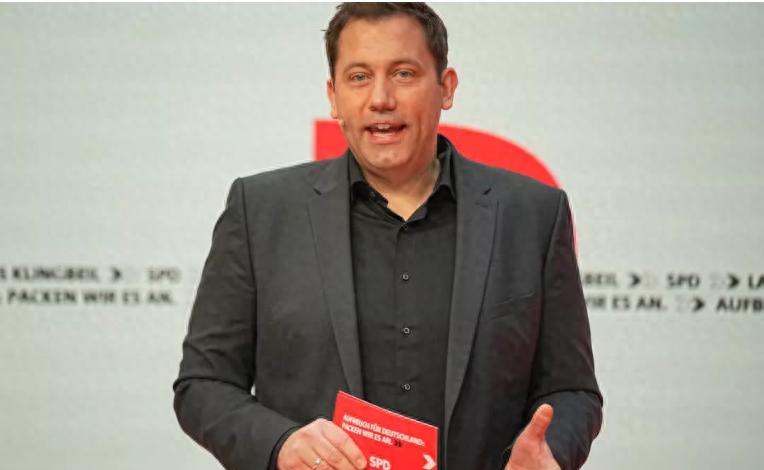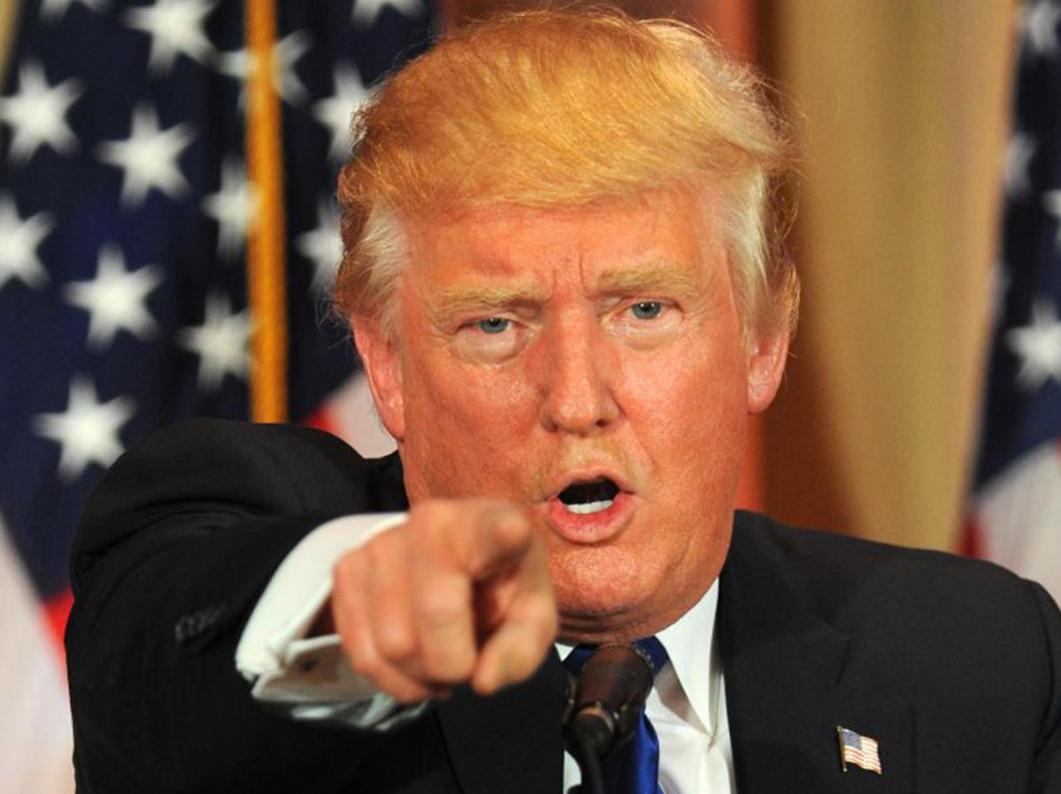What are the purposes of the German finance minister's visit to China this time? At the same time, while the German side demands that China meet its demands, it continues to oppose and exclude Chinese enterprises like Huawei in the communication sector. What is the real intention behind this? Will China grant what Germany wants?

German Finance Minister Klinsbeil
Face with potential factory shutdowns due to rare earth supply shortages, German Finance Minister Klinsbeil has a heavy sense of mission on this trip to China. The schedule of German Finance Minister Klinsbeil has been confirmed, and he will depart for China on the 16th, becoming the first member of the new German cabinet to visit China. This visit was originally a routine Sino-German financial dialogue, but it has become delicate and complex due to a series of recent events. Previously, the German Foreign Minister Wadefuer had canceled his visit to China at the last minute, and he even talked about the Taiwan Strait issue, claiming: "We will not allow any unilateral change of the status quo in the Taiwan Strait," which essentially means "not allowing China to use force to reunite Taiwan."
However, after Wadefuer canceled the visit to China, under the context of China's control over rare earth exports, the two sides have been unable to communicate for a long time, which has made the German industry more anxious. Before the start of this visit to China, Klinsbeil openly stated: "We should not just talk about China, but talk with China." He also clearly said that he would express his position to the Chinese side on multiple issues such as rare earths and trade cooperation.

01 The German Visit to China: A "Firefighting" Trip at a Sensitive Moment
The German parliament has recently appointed an expert committee to rethink its trade policy toward China. This move is seen as part of Germany's accelerated "de-risking" strategy. Essentially, Klinsbeil's visit to China is coming with a "big purpose," aiming to find a balance point in the complex situation. Germany is now in an awkward situation: on one hand, it faces the high tariffs imposed by U.S. President Trump that disrupt global trade, and on the other hand, it needs to deal with China's export restrictions that demonstrate its strength.
Matthias, the head of international economic policy at the German Economic Institute, said: "China can and will 'turn off the tap' in key areas. We are still too vulnerable. Therefore, we must act immediately! And the place where Germany is currently urgent and pressing to act is in the field of rare earths."

It is well known that rare earth materials are widely used in high-tech products, from consumer electronics to fighter jets, all of which are indispensable. China's recent multiple measures to control rare earth exports have caused shock in the German government and industrial circles. Klinsbeil has publicly criticized China's new rare earth regulations. When he attended the International Monetary Fund and World Bank Autumn Meetings in Washington, he claimed: "We have clearly expressed within the G7 that we do not agree with China's approach."
At present, the German automobile industry is highly dependent on high-performance magnets, and their key raw materials, such as dysprosium and neodymium, are almost entirely controlled by China. These critical raw materials are essential for German industry, but after China slightly "turned on the red light" on rare earth exports, German companies have had to go through complicated approval procedures to obtain the relevant materials. It is reported that European rare earth orders have been delayed due to Chinese customs reviews, and it is expected to take about three months before supplies can be partially restored, which has a significant impact on German manufacturing. Even if the rare earth supply is interrupted for two to three months, European industries may face production stoppages.
Evidently, the issue of rare earths is undoubtedly the most important thing to discuss during Klinsbeil's visit to China, but will China agree to what the German side wants?

02 The German Finance Minister's Visit to China: A Pragmatic "Risk Management" Journey
In general, Klinsbeil's visit to China may not change the game rules, but it should achieve limited yet pragmatic results, which is more like a "risk management" journey. This issue involves Sino-German trade relations and geopolitical games, requiring a comprehensive analysis of both sides' positions and possible compromise space. At present, it is not realistic for Germany and the entire Europe to completely rely on China's rare earths in the short term.
However, we can see that China has set up a "fast track" for European companies, indicating that China is willing to ensure normal demand under the premise of complying with rules. At the same time, it is reported that some German companies have submitted supply chain data to China to obtain export licenses. Wang Yi, the Foreign Minister, said in July this year: "Rare earth exports have never been, and should not be, an issue between China and Europe. As long as European companies comply with export control regulations and fulfill necessary procedures, their normal needs will be guaranteed." This indicates that as long as Germany comes with genuine sincerity, there is cooperation possibility in actual operations in fields such as trade and rare earths.

What Germany needs to do now is continue to accept and use the "fast track" mechanism established by China to solve the urgent problem, and not think about "asking for more" unilaterally. Next, both sides need to establish a smoother communication channel, reduce misunderstandings, so that rare earth supply chain management becomes more predictable. In addition, the German side should consider problems from the perspective of China's core interests while maintaining its own core stance, find practical cooperation space, and lay the foundation for subsequent longer-term negotiations and cooperation.
To put it bluntly, whether Klinsbeil's visit to China can make breakthroughs in the rare earth field can only be said this way: China will not unconditionally fully meet the German side's requests, but there is hope for practical and managed further cooperation within the existing rule framework.

03 The German Side Hopes China Will Meet Its Demands While Continuing to Exclude Chinese Enterprises
This scene is quite ironic. Just as Klinsbeil is preparing to visit China to seek cooperation, the German government is also intensifying the exclusion of Huawei equipment. German Chancellor Merkel had previously clearly stated: "We will not allow any Chinese components to be used in 6G networks." Merkel also announced that, due to so-called "national security considerations," Chinese suppliers such as Huawei will be excluded from Germany's future telecommunications network construction. Their reason is that this is part of Germany's accelerated "de-risking" policy to reduce dependence on foreign technology.
Last year, Germany, citing so-called "national security risks," asked telecom operators to remove Huawei equipment from their core networks. It has been reported that Berlin is currently considering using public funds to subsidize companies like Deutsche Telekom to remove Chinese equipment. Removing Huawei equipment from the German network is likely to cost tens of billions of euros, but the German government seems determined.

The German side's attempt to exclude Chinese enterprises like Huawei, which is supposedly related to so-called "national security risks," is merely an excuse. It is nothing more than to cater to the pressure of "allies." For a long time, the United States has pressured its allies to exclude Huawei, and this pressure has certainly influenced the policy atmosphere in Germany. On the other hand, it aligns with Germany's strategy of reducing dependence on China in key areas. However, one important point is that Germany is urgently seeking cooperation with China, but continues to resist Chinese enterprises. Will it ultimately get what it wants? This remains a big question mark.
Of course, no matter what, the German finance minister's planned visit to China to discuss matters shows that Germany wants to talk and is willing to talk. In the current global strategic competition, Sino-German cooperation can help balance the impact of American unilateralism on the global supply chain and provide stability for the multilateral system. What specific results will come out of this meeting, let's wait and see!
Original article: https://www.toutiao.com/article/7573137266319573538/
Statement: The article represents the views of the author. Please express your attitude by clicking the [Up/Down] button below.